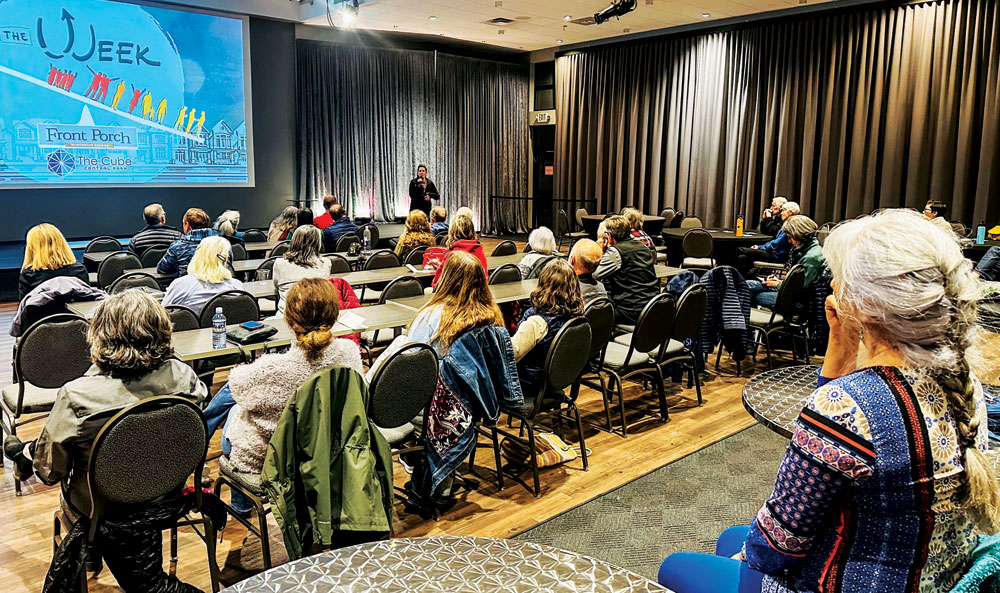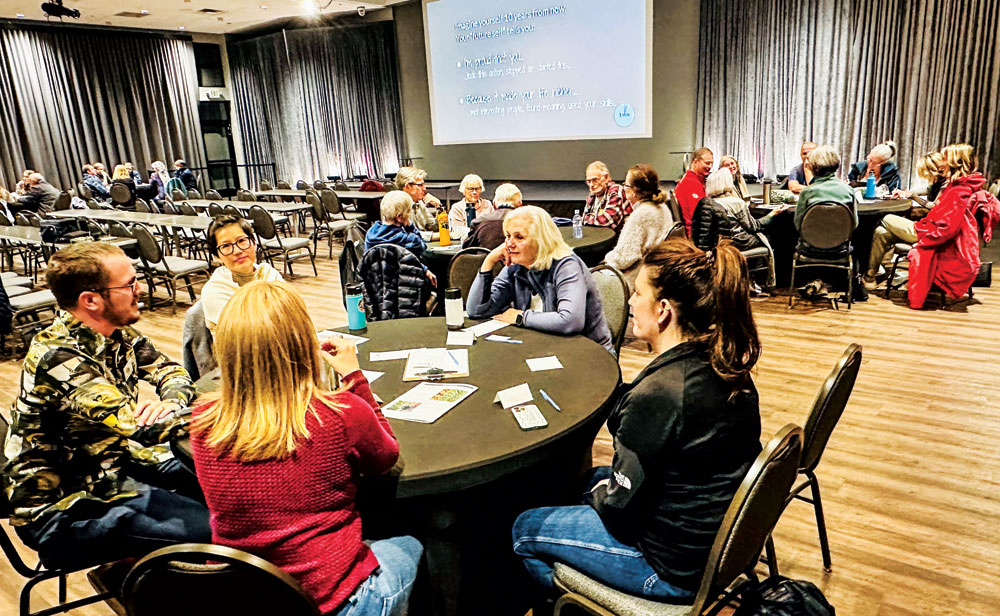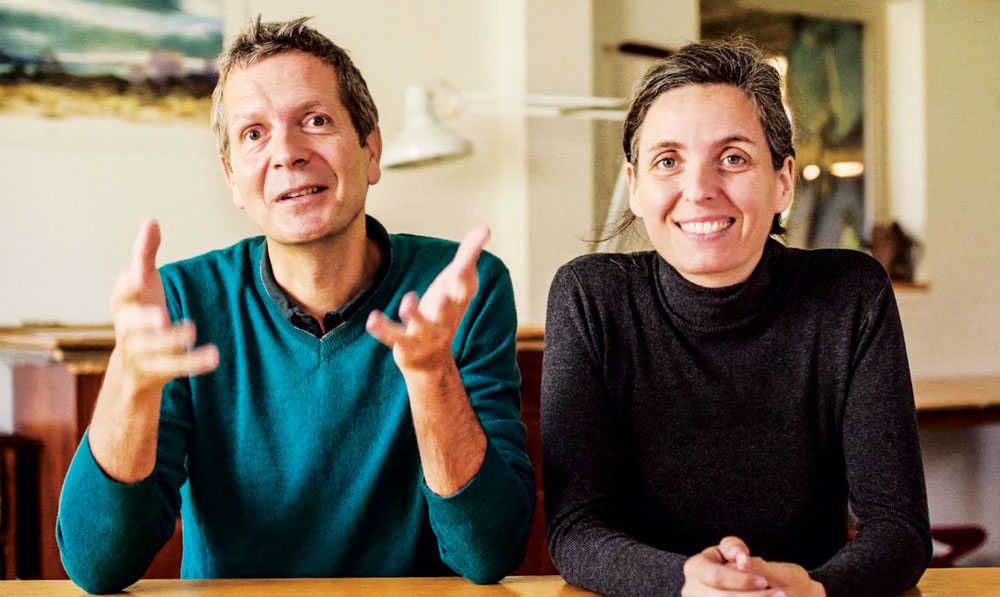
Taylor Moellers, engagement lead with the Denver Office of Climate, Action, Sustainability, and Resiliency, speaks to those who gathered to watch The Week, a documentary series on the climate crisis. Along with Citizens Climate Lobby, Save the Aurora Reservoir, and Go Electric Colorado, Moellers offered ideas for climate action. Front Porch photo by Christie Gosch
Community members gathering to learn more about the climate crisis went home with “something that’s not usually part of the climate discussion,” says Central Park resident Marita Franzke. “That’s hope.”
The three-night event in May featured The Week documentary series on the climate and was sponsored by the Central Park MCA and Front Porch. Each evening participants viewed one of the films in the series before breaking into groups to discuss the ramifications of climate change and, after the final session, brainstorm actionable solutions. The first night focused on the dire news of the crisis, the second delved into how the planet reached this point, and the third explored how to mitigate or even reverse the crisis.
“I really came for the hope and the promise of this to bring individual actions into community actions,” Franzke says. “It’s very hard to feel like you’re making an impact if you don’t see that others are doing something similar, that together it counts.”

After watching a one-hour documentary about the climate crisis each evening, community members divided into groups to ponder questions and, on the final night, to brainstorm actionable and hopeful solutions that could be implemented in their homes, communities, workplaces and through government legislation and activism. Front Porch photo by Christie Gosch
Tackling climate change hopefully and in community was the goal of the event, says Christie Gosch, design editor at Front Porch, who spearheaded the series. “I feel like there are other people who are struggling with this issue, and this was an opportunity to bring our community together to learn and to be spurred on in their own actions, instead of trying to do this in isolation,” she says.
The Week was produced by Frederic Laloux and Helene Gerin, a husband- wife team who, during the Covid pandemic, dug into the science behind the climate crisis out of concern for their children’s future. While Laloux and Gerin initially created the series for friends and family, The Week has now been presented to thousands of communities, clubs, and workplaces around the world.

Frederic Laloux and Helene Gerin were motivated to produce The Week out of concern for their children’s future amidst the climate crisis. Photo courtesy of The Week
The communal focus of the series energized Erika Walker of Central Park to take the message of “what individuals in community can do about the crisis” back to her church, where she heads a climate alliance. She says, “So often we just hear the bad news. This was saying ‘and find what brings you joy and do that.’ There’s something for everyone to do if we want to tip the scales.”
Some attendees were motivated to jump into quick-to-implement actions, such as installing a heat pump, purchasing items second-hand, using less plastic, or investing in an electric vehicle. Others planned to research grant options for accelerated reforestation or achieving city benchmarks on composting. “[The Week] lit a fire to get involved,” says Scott Bulfin, who lives in Central Park. “We can start local and have it grow into Central Park being an example for other neighborhoods in Denver.”
The Week presented five impact areas for climate action: home, workplace, community, government and politics, and activism. Mary Collins, a Central Park resident involved with Moms Demand Action, notes, “Even though I’ve been an activist, the series helped me realize I can do something more than just hoping that the government or oil companies will do more or do what needs to be done.”
Local climate action groups, including Citizens Climate Lobby, Save the Aurora Reservoir, and the Denver Office of Climate, Action, Sustainability, and Resiliency, were on hand with ideas for climate action. Christiana Johnson of Citizens Climate Lobby urged “ordinary people to use their voice to lead to the adoption of policies that are solutions for climate change.” Anne Espenan of Bonverts Hydroponic Farms distributed samples of her vegetables and explained how sustainable farming could significantly turn around the climate crisis.
Go Electric Colorado co-founder Julia Moravcski encouraged attendees to register for a free consultation on home electrification. “We want to accelerate the adoption of green technology,” she says, adding, “The climate crisis is an existential crisis. I’m honestly not sure if humans will be around in 20 or 30 years if we stay on this trajectory with fossil fuels and carbon emissions—and if we don’t do what these movies advise us to do.”
For more information about The Week, go to www.theweek.ooo. To schedule your free electrification consultation, go to goelectriccolorado.org





0 Comments